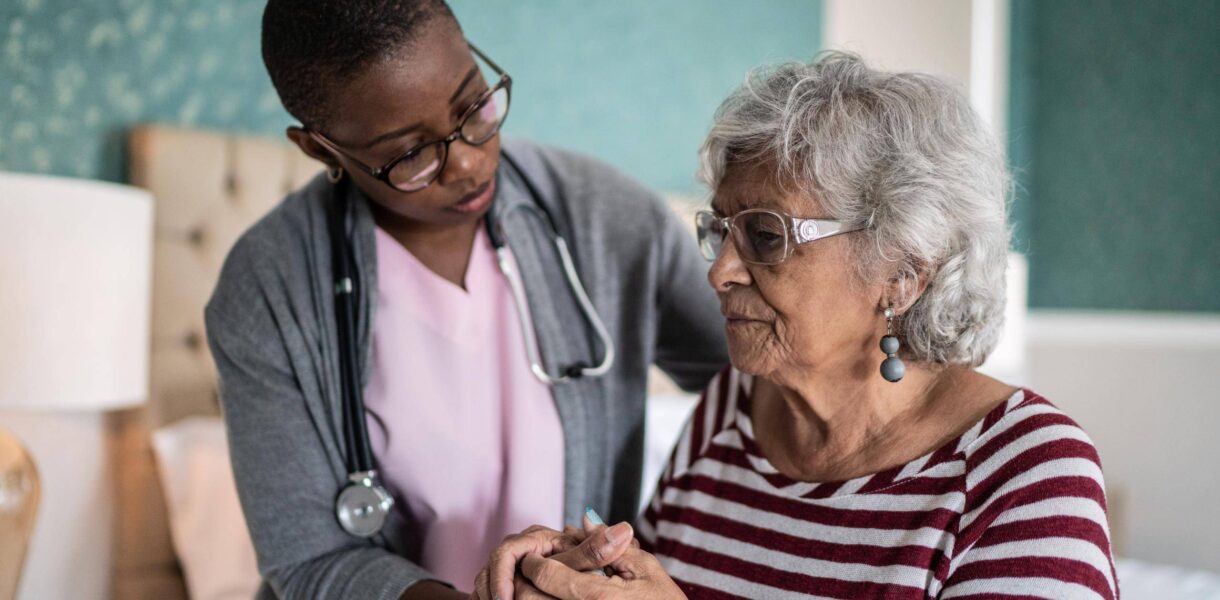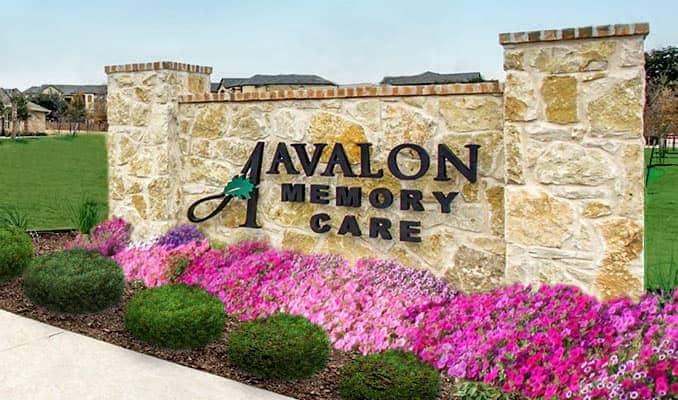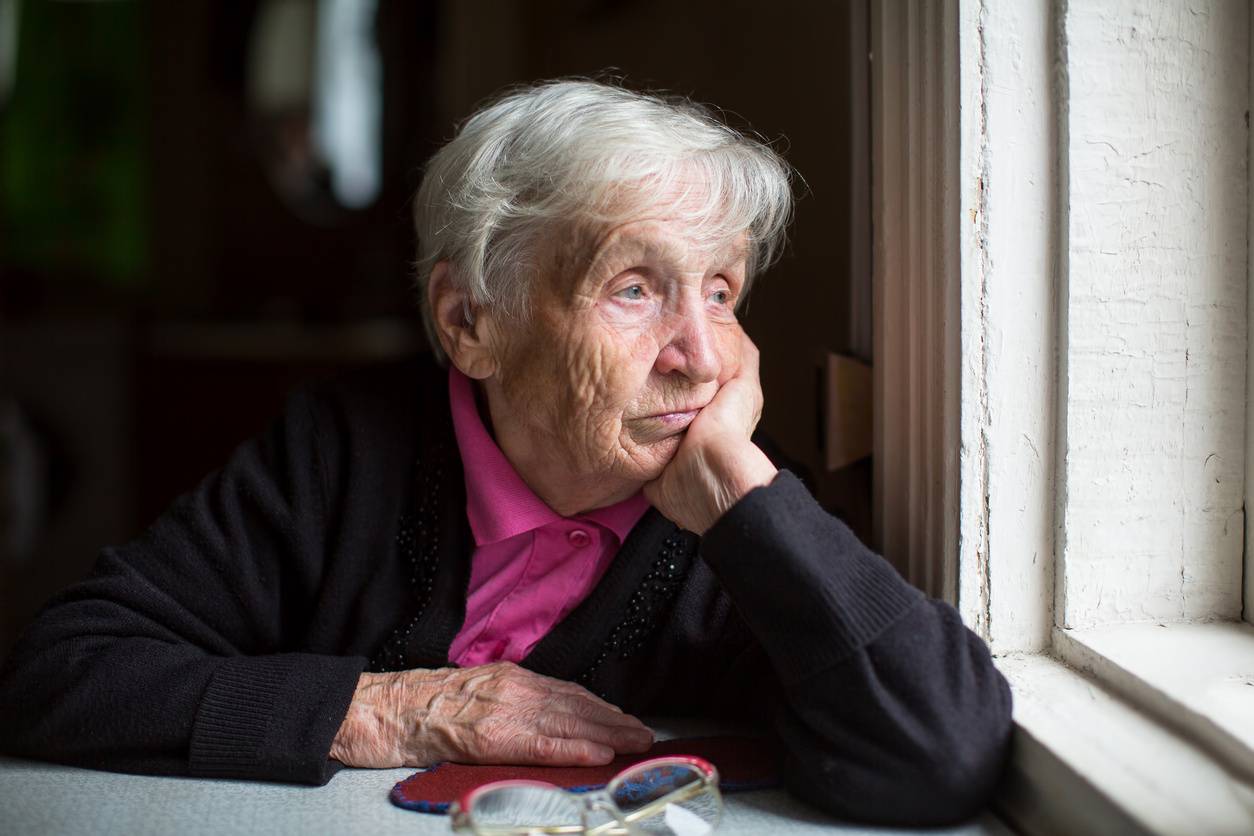
Planning Your Future After a Dementia Diagnosis
A dementia diagnosis is distressing for any family. Even when so much feels unknown, there can still be some comfort in knowing what steps to take to prepare for the days ahead. Updating vital information, proofing the home for any safety issues, and supporting your loved one’s emotional wellness are ways to get ready.
It’s just as important to keep self-care in your own routine, too. Dementia affects the entire family’s mental health, so now’s the time to plan solutions that will give your mind and body much-needed hiatus moving forward.
Our team at Avalon Memory Care know this prep time is a critical stage in the dementia journey. We’re here to help.
Here are some tips to get you started:
Gather Important Paperwork
Circumstances can change rapidly for any major life event, especially when there’s a dementia diagnosis. That’s why keeping necessary documents in an accessible place is essential.
Follow this guide to start building your loved one’s personal file. Consider including:
- Your loved one’s current medications, health conditions, immunizations, and doctors’ names and numbers
- Covid immunization card
- Dental records or procedures, including if dentures are worn
- Emergency numbers
- Copy of health insurance card
- Current photo of your loved one (additionally, one photo with you and other family, for any identification purposes)
- Hard copy of an estate will
- Location of family heirlooms
- A living will with your loved one’s wishes for their medical care
- Financial records, like current bank statements, pension info, life insurance, credit cards, loans, and 401k accounts
- House deed
- Property deeds
- Vehicle titles
- Relevant court documents
- Passwords to online accounts + your loved one’s computer where they store important files
- Pet records, including the pet’s medications, vet’s name and number, groomer’s info, and meal routine
- Social media accounts
- Employment info, if they’re still working
- End-of-life wishes, for instance, their ObitKitÒ
Once you’ve gathered what you need:
- Organize everything into a properly marked folder and store in a secure location, like a fire-proof safe or safety deposit box.
- Make a few copies and entrust them to responsible family members.
- Create a digital version.
Prepare For a Medical Emergency
First responders have to work fast, and it can be a matter of life or death when they arrive. Help them do their job by leaving a red folder in a prominent place in the house. Label it “Emergency First Responders” in large, legible type.
Here are some other eye-catching options to alert first responders:
- “My Medical Info” folder
- Emergency workbook for EMTs or your family members
- Mobile briefcase file
- Fridge magnet
- Wallet card
Here are ways to prepare yourself:
- CPR guide for household
- Adult First Aid guide
*Remember, it’s always better to overprepare than underprepare. We hope you never have to go through an emergency, but having what you need can save a life.
Ensure important info is in the preparedness kit for first responders when they enter your home. Things to include:
- Medications and what medical diagnoses they treat
- Drug and food allergies
- Neurological, cognitive, or psychological conditions
- Hearing or vision impairments
- Immunizations
- Doctors’ names and numbers
- Emergency contacts in your family
- Where you keep medications, especially items like insulin or an EpiPen®
- List of pets or other people in the home who need care
Places first responders will look for info:
- Documents or a medication magnet attached to the fridge
- Kitchen counter
- File box or file cabinet
- Kitchen drawer or attached inside a cabinet door. Label this drawer for quick access or put a red dot on the outside of the cabinet.
Make a first-aid kit that’s front-and-center for your loved one. Add a label to each item to explain the purpose, in case they cannot remember how to use it or what to take. Include:
- Bandages
- Tissues
- Neosporin
- One dose worth of painkillers, like ibuprofen or aspirin (to prevent an accidental overdose)
- Tums, Alka Seltzer, or Pepto Bismol
- Bladder meds like Azo
- Incontinence underwear
- Cold medication
- Cough drops
- Allergy meds and/or EpiPen®
- Hand sanitizer
- Antiseptic solution
- Hydrogen peroxide
- Aloe vera gel
- Calamine lotion
- Denture cleaner and other supplies
- Sunscreen
- Bug repellant
- Cold compress
- Face masks
- Tweezers
- Nail clippers
- Safety scissors
- Cotton balls
- Swabs
- Extra pair of readers
- Home Covid test (check expiration)
Check out more tips here.
Create a sign for your loved one in large type. Leave it by the phone or on the fridge with this information:
- “EMERGENCY: DIAL 911”
- Your name. For example: MARY SMITH (Daughter) xxx-xxx-xxxx
- Trusted friend or neighbor’s info. For example: Jon Matthews (Next-door neighbor) xxx-xxx-xxxx
Other Info to Add:
- Fridge reminder of serious symptoms and what to do.
- Daily reminders. For example, “Take heart medication at 11:00 a.m.”
- “Don’t forget to drink water.” Try a sign like this.
Give Loved Ones the Info and Resources They Need
It probably feels bossy or overbearing at first, but it’s necessary to keep your loved one safe in this new reality. Finding a balance between being there for them, but also respecting their need for independent thought is tricky, but here are some ideas to get you started. Of course, every person is different and you’ll need to tailor your care based on the unique needs of your loved one.
Compose and post a “tips list” to keep them safe. Some examples:
- “Keep front door and back door locked.”
- “Don’t open the door to strangers.”
- “No cooking on the stove.”
- “Wait until Bob gets home to make dinner.”
- “Don’t give out any info to people on the phone.”
- “Don’t buy anything online or on the phone without talking to your daughter first.”
- “Call your son when you want to go to the store.”
Invest in household safety measures:
- Install a fire blanket in key places in your loved one’s home. Frequently educate them on how to use it.
- Make sure your loved one’s living space includes a working carbon monoxide detector and smoke detector.
- Add non-slip rugs to prevent falls.
- Make adjustments to bathrooms, including shower grab bars, a bath bench, and non-slip bath mats.
- Hire a trusted cleaning service, if your loved one will allow it.
- Consider a medical alert necklace for your senior.
- Keep a charged external battery phone charger handy with easy instructions, in case of power outages.
- Install motion or dusk-to-dawn exterior lights on the home.
- Put interior lamps on a timer and add motion sensor lights to pathways and closets.
- Attach corner protectors to furniture and other sharp surfaces.
- Offer to care for their pet if they’re no longer able or if the pet might be in accidental harm’s way.
- Add a security system and/or cameras to watch over your elder.
- Leave instructions for the laundry machines and other simple appliances that may start to cause confusion.
*You’re probably going to run into some stubbornness in the interim. Dementia has a way of changing certain parts of our personalities, so an easygoing person from before could evolve into a headstrong individual who’s more difficult. Try your best to be patient. It’s the disease, not the person. If you need help, Avalon is an available resource for questions and advice.
Plan some social interaction and companionship activities for your loved one, based on their interests and what’s meaningful to their life. We’ve “planned” a few already for you:
- Have them spend time with the family dog or kitten. If possible, take walks together or play fetch out back.
- Do frequent sit-down dinners.
- Arrange flowers.
- Paint pottery, doodle, or sketch.
- Enjoy a trip to the Starbucks drive-thru.
- Visit with their grandkids.
- Complete a puzzle with your loved one.
- Make sandwiches together for a backyard picnic.
- Start a book club with your loved one and discuss what you’ve read. Writer, Will Schwalbe, did this and documented it in “The End of Your Life Book Club.”
- Watch a funny movie together.
- Play with sensory fidgets.
- Set up a “friend date” with their bestie or group of besties so that they can enjoy each other before memories further decline.
- Coordinate a jam session if they’re musically-inclined. Sing together or bring over their musician friends for a living room concert.
- Have a dance party at home by playing their favorite music.
- Do a taste-test based on foods they enjoy: new chip flavors, varieties of cheeses, or cookie recipes.
- Schedule an in-home chair massage or manicure with your favorite therapist(s).
- Attend church or synagogue together. Or have your own Bible study at home.
- Dig through family ancestry and create a family tree together.
- Take a day trip to your parent’s hometown or other nostalgic location.
- Spend time each week sharing memories and even documenting them for a record of your family history. Have your loved one share stories about people in picture albums. Take photos and videos of these moments.
Take Good Care of You, Too
Dementia affects every family member, so supporting your own emotional and physical needs will also support your loved one. When you nurture your wellbeing, you can make better decisions for your parent or relative. In other words, as a caregiver, the care you give yourself is just another part of the entire treatment plan. There isn’t a one-size-fits-all approach, so it’s your choice to determine what you require during this challenging life event.
Make your mental health a priority. Dementia can be a long, laborious road and you must pace yourself when caring for someone you love. Here are a few things we recommend:
- Seek therapy from a licensed counselor or psychologist.
- Join a support group specifically for family of those living with dementia.
- Keep up with your own health-related conditions. Don’t skip doctors’ appointments, try to eat as healthy as possible, and stay active.
- Stay organized by adding to a calendar or planner. As more responsibilities pop up for your loved one, you can have peace of mind that your personal activities are neatly streamlined.
- Do something for yourself on a regular basis: massage, pedicure, facial, exercise class, quality time with your dog or cat, coffee at your favorite place, an overnight stay at a peaceful hotel, an afternoon in the park, binging a new TV series.
- Ask for help from friends and family when you need it. Actually, ask them now, saying you’ll probably need their support in the future.
- Have a discussion with your employer or a trusted manager to share what’s ahead and make a plan for any adjustments to your job.
- Review your finances to prepare for any upcoming expenditures.
- Think of this as a good opportunity to update your own will and life insurance.
- Schedule special things with your loved one now. As dementia progresses, it’ll get harder to engage in some of the activities you once enjoyed together. However, there are many you can still do.
- Research the disease through literature, online video content, and by talking to others who understand.
- Read “The Art of the Wish” by Marn Jensen and Andy Newcom. It’ll shine a greater light on the love we have for our senior loved ones.
Conclusion
Our caregiving team at Avalon Memory Care realize that your family might be new to learning about dementia. We understand that figuring it all out comes with time and experience, but we’re here to help. Through our expertise in dementia care paired with our love for seniors, we have the unique opportunity to work with your parent or relative. We want to answer your questions and guide you on this journey. Please call us at (972) 713-1383 or (888) 522-1918 to talk with our staff and get your loved one the best care you can gift to them.
See More Articles
-
Visiting Your Aging Parent With Memory Loss at Avalon Memory Care
As a loving son or daughter, you naturally want the best of care for your senior parent. The compassionate assisted living caregivers at Avalon Memory Care want you to know that while your parent is living with us, he or she will receive nothing less than respectful, loving care within our comfortable, safe, and fully-staffed
-
Celebrating New Year’s Day in Memory Care
Families often find that celebrations with their loved ones in memory care are easier when they embrace new traditions. For instance, it may not be practical to expect your loved one to stay up until midnight on New Year’s Eve. Instead, consider throwing a New Year’s Day celebration, complete with a countdown to the first
-
Understanding Parkinson’s Disease and Dementia
Parkinson’s disease is an incurable neurological disorder, with progressively worsening complications. Perhaps the most well-known symptom of Parkinson’s is a hand tremor, but it can also cause speech changes, muscle rigidity, and impaired posture. Eventually, as the disease progresses, more than half of all individuals with Parkinson’s will require dementia care. This particular type of
Testimonials
Downloadable Resources
We Are Avalon
Discover the heart of our community; download ‘We Are Avalon’ to get to know our dedicated team and our commitment to providing a warm, family-like environment.
Transitional Care Guide
If you’re considering a transition, we’re here to help; download our Transitional Care Guide for compassionate guidance through each step of the process.
Schedule a Tour
Visit one of our 30+ campuses and experience our unique approach to memory care.












